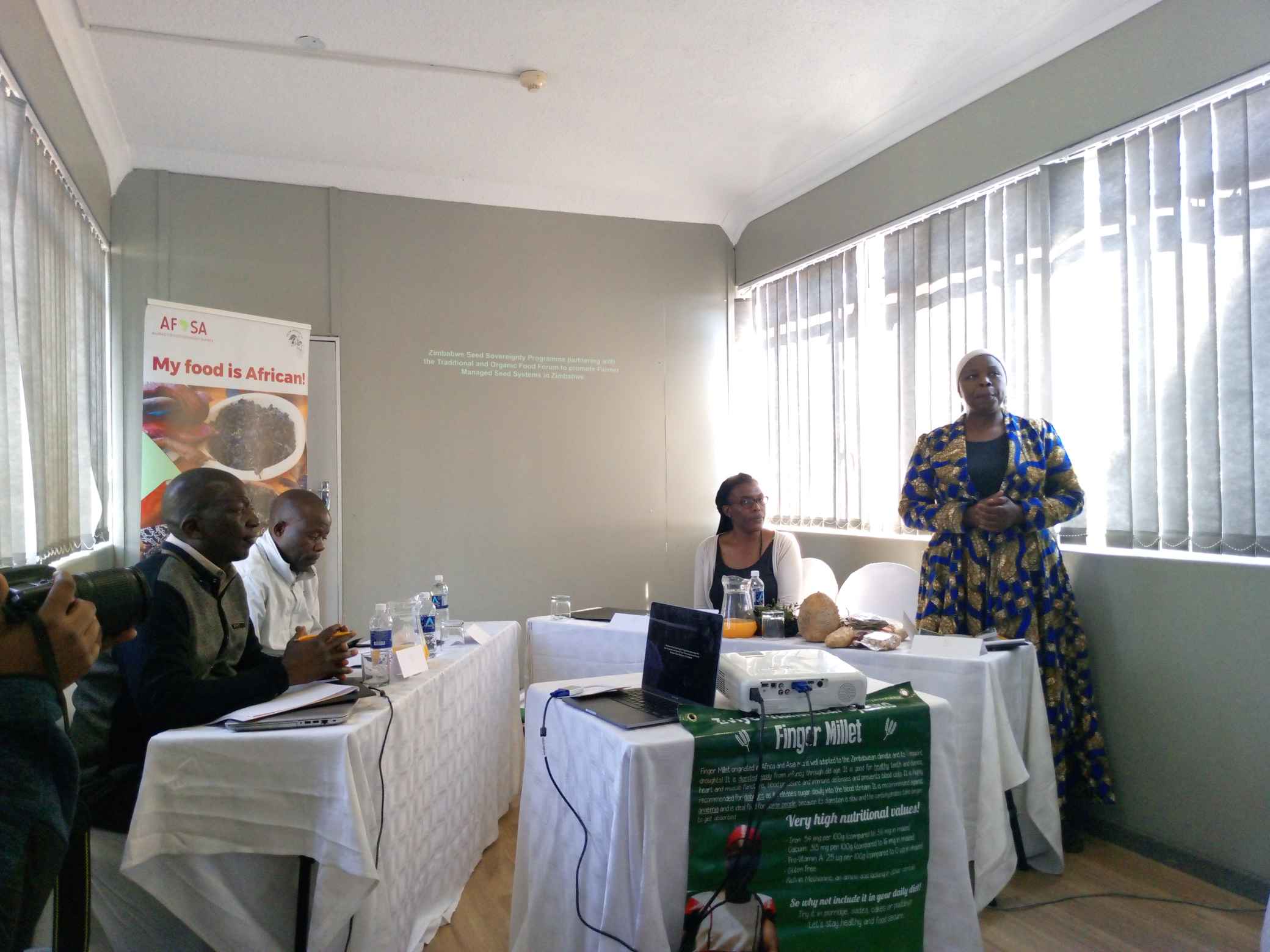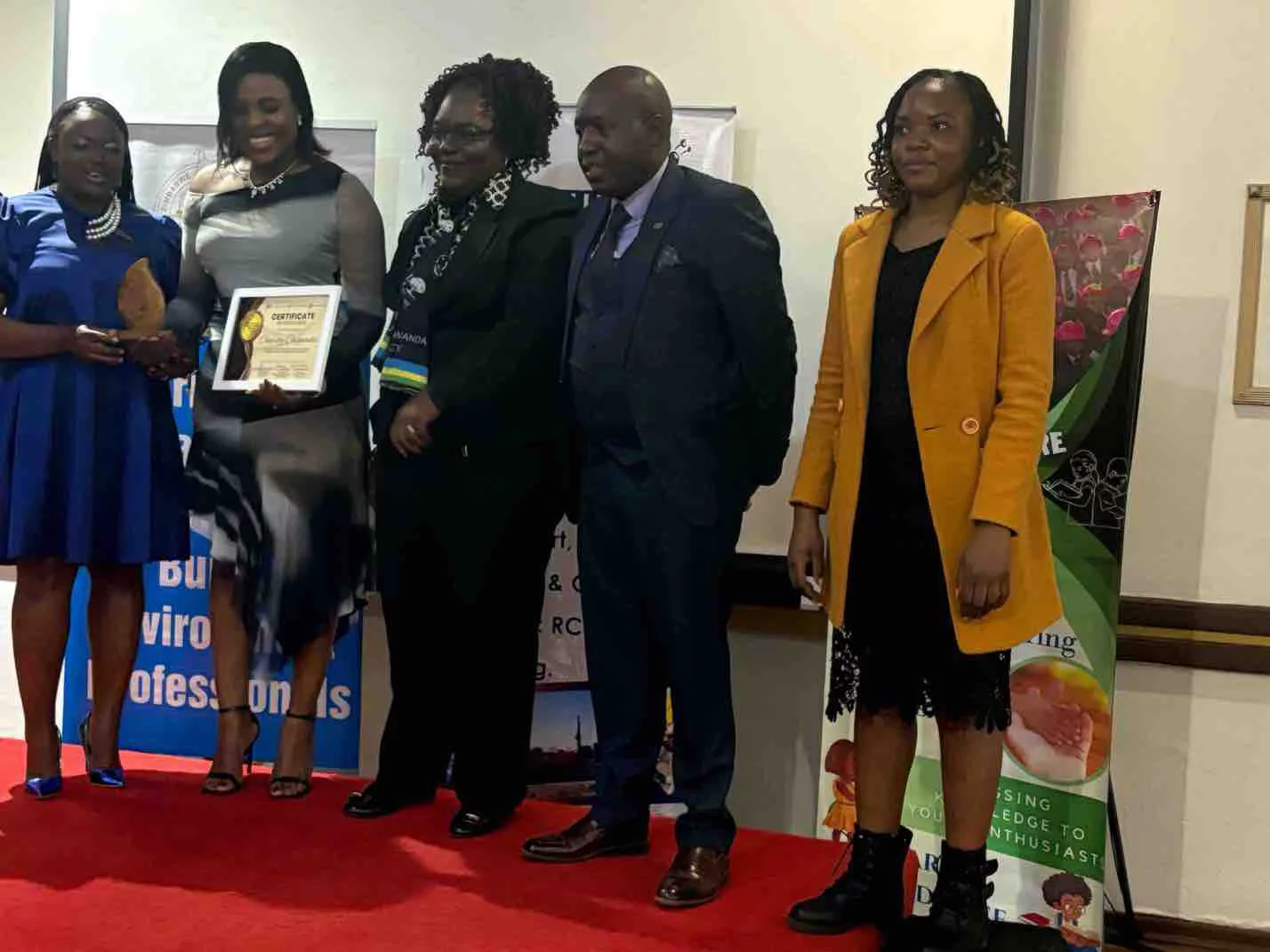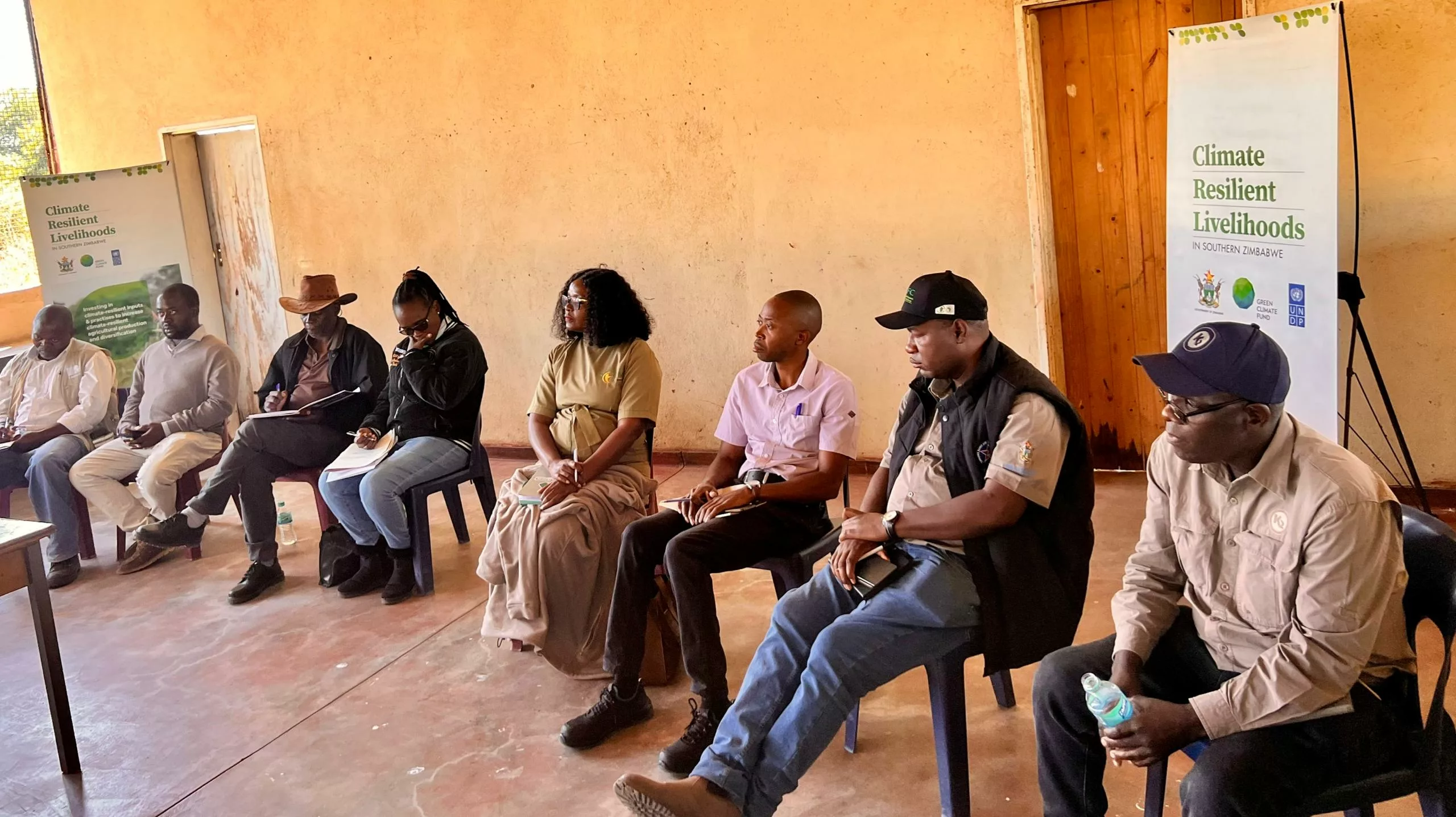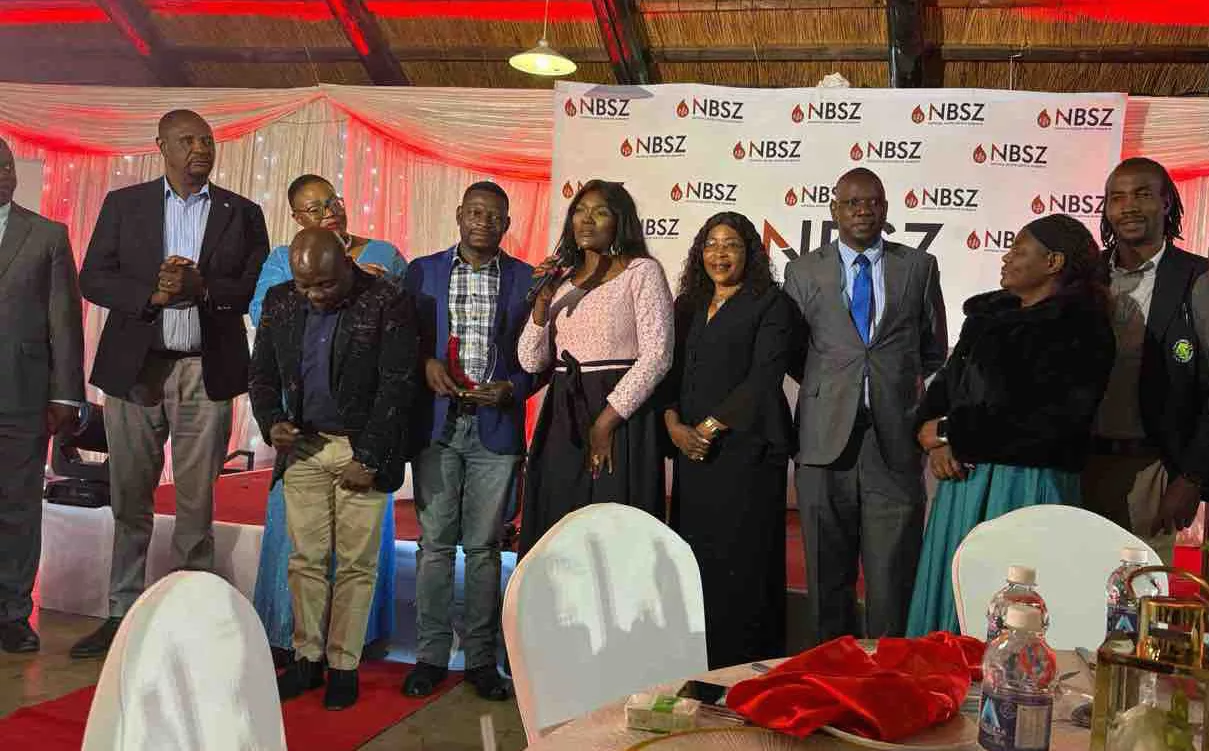|
Getting your Trinity Audio player ready...
|
Under the auspices of the Alliance for Food Sovereignty in Africa (AFSA), the Participatory Ecological Land Use Management (PELUM) Zimbabwe is undertaking a campaign in Zimbabwe to raise awareness and consciousness on the farming, and consumption of traditional Zimbabwean food under the banner of the My Food is African! Campaign. In Zimbabwe, the campaign is being led by PELUM Zimbabwe and is also being implemented by other AFSA partners across Africa.
The campaign was launched by Dr. George Kembo, Director General of the Food and Nutrition Council of Zimbabwe in September 2022 at the National Seed Festival at Harare Botanical Gardens on the backdrop of raising awareness on the importance of consuming local traditional diets and promoting indigenous health awareness associated with Plant Genetic Resources for Food and Agriculture (PGRFA.)
Addressing journalists today, Bertha Nherera, who is coordinating the campaign in Zimbabwe, has a vast experience in agroecology. and is also an economist and entrepreneur.
“The campaign has two objectives. One is on raising and solidifying awareness of Zimbabwe’s traditional foods, seeds, dishes, diets, and cuisines. the other objective is on influencing political decision-making on diets and farming systems in Zimbabwe.
Historically, the Zimbabwean diet was nutritious and diverse. Over the past few years however, particularly after the colonisation of Zimbabwe, most people started moving away from the African cuisines, diets, and dishes that made up our traditional food systems in favour of processed, and in some cases, foreign cuisines, diets, and dishes. This dramatic shift in diet is mainly a result of the dominance of the Green Revolution agenda and a lack of recognition of the valor of indigenous traditional food in Zimbabwe’s agriculture and food systems
“The shift in diets has taken a toll on the health and nutrition of Zimbabweans at both ends of the malnutrition spectrum: 26.6% of children under 3 years of age suffer from stunting linked to poor dietary diversity while 35% of adult women and 12 percent of men are overweight or obese.
“The intersection of diets and farming systems is unquestionable as Zimbabwe battles to cope with the effects of climate change, soil degradation, biodiversity loss, non-communicable diseases (cancer. hypertension, sugar diabetes type a, among others) food and nutrition security, food sovereignty, effects of colonization on Zimbabwe’s local food systems, escalating prices of external inputs and more. Consequently, this is leading to the violation of socio-cultural, economic, and ecological rights as guaranteed in international and regional human rights instruments, statutes, and conventions to which Zimbabwe is a signatory to,” she said
Speaking on the same occasion, Charles Dhewa, the Director of Knowledge Transfer Africa (KTA), said a shift in diets and farming systems directly impacts farmers’ rights to serve, use, exchange, and sell farm-saved seed and propagation materials. It also impacts the right to food and the right to health, which can only be fully realised upon the provision of underlying determinants of health such as safe and potable water, adequate sanitation, safe food, adequate nutrition and housing, healthy working, and environmental conditions, health-related education and information and gender equality. All these underlying determinants are negatively impacted by a shift in diets and industrial agriculture.
Working with women, men, youths, policymakers, stakeholders, food vendors, chefs, and like-minded organisations, PELUM aims to shift the behaviour towards increased consumption of Traditional foods particularly by young people.
From August 2022 to June 2003, PELUM Zimbabwe and the core group of organisations driving the Campaign have conducted the following activities in support of the My Food is African Campaign Baseline survey conducted in collaboration with Knowledge Transfer Africa.
– Engagement with policymakers and strategic decision-makers.
– Review of strategic documents such as the Zimbabwe National Strategy and Action Plan for Plant Genetic Resources for food and Agriculture 2022-2032; the Draft Multisectoral Food and; the Nutrition National Strategy 2022-3025.
– Assessment of Food, Baskets in Chimanimani and Masvingo districts,
– Training of mothers on the use of the “My Fond is African Barefoot Guide”.
Cooking competitions in schools and among groups of women.
PELUM’s Call to Action
PELLIM Zimbabwe and the Core group of Organisations in Zimbabwe and AFSA are calling for
– Reviewing of Procurement Regulations that are implemented by the Procurement Regulatory Authority of Zimbabwe (PRAZ), so that government institutions such as hospitals and boarding schools can be able to buy traditional food directly from both small-scale and large-scale) farmers, thereby making the food affordable and accessible.
– Colleges, boarding schools, and hospitals review these diets/menus to include traditional foods so that they make them more diverse and nutritious
– That schools form clubs for cooking and demonstration of traditional foods; encourage certain days of the week where children bring traditional food in their lunch boxes and homemade juices in their juice bottles; and have cooking competitions at each school
– The Zimbabwe Vulnerability Assessment Committee (ZIMVAC) form be reviewed to incorporate more traditional foods.
– The government to distribute medium-sized machinery such as threshers to small-scale farmers across Zimbabwe so that small-scale farmers can start producing clean grain which will boost consumption of traditional grains.
– Local authorities improve the infrastructure of mass markets in the country so that they have improved, access roads, drainage, toilets, and clean market space.
– Ministry of Agriculture to start domesticating a variety of traditional vegetables and fruits grown using agroecological practices.
– Farmers exchange and sell their seeds freely across the country without limitations to a radius of 40 kilometres within their locality.
“We believe this will go a long way in strengthening Zimbabwe’s Food and Nutrition Security and Sovereignty and hence address the problems mentioned above,” Nherera added..






